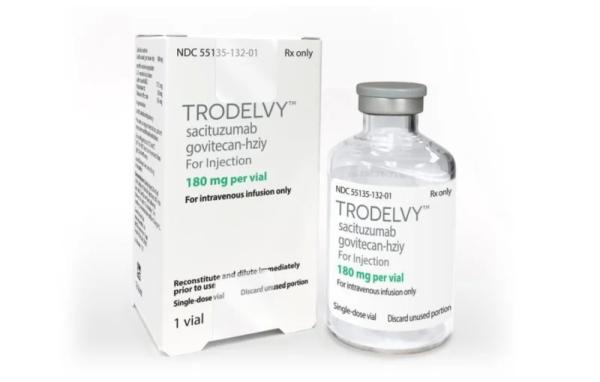Sacituzumab govitecan Disease Interactions
There are 2 disease interactions with sacituzumab govitecan.
Sacituzumab govitecan (applies to sacituzumab govitecan) hepatic impairment
Moderate Potential Hazard, Moderate plausibility. Applicable conditions: Liver Disease
The safety of sacituzumab govitecan has not been established in patients with moderate (total bilirubin greater than 1.5 to 3 times the upper limit of normal [1.5 to 3 x ULN]) or severe (total bilirubin greater than 3 x ULN) liver dysfunction; it has not been tested in patients with AST or ALT greater than 3 x ULN without liver metastases, or AST or ALT greater than 5 x ULN with liver metastases. No recommendations can be made for the starting dosage; caution is advised in patients with moderate or severe liver dysfunction. No adjustment to the starting dosage is needed in patients with mild liver dysfunction.
Sacituzumab govitecan (applies to sacituzumab govitecan) renal impairment
Moderate Potential Hazard, Moderate plausibility. Applicable conditions: Renal Dysfunction
There are no data on the pharmacokinetics of sacituzumab govitecan in patients with severe renal dysfunction (CrCl 15 to 29 mL/min) or end-stage renal disease (CrCl less than 15 mL/min); caution is recommended in these patients.
Switch to professional interaction data
Sacituzumab govitecan drug interactions
There are 232 drug interactions with sacituzumab govitecan.
More about sacituzumab govitecan
- sacituzumab govitecan consumer information
- Check interactions
- Compare alternatives
- Reviews (5)
- Side effects
- Dosage information
- During pregnancy
- Drug class: miscellaneous antineoplastics
- Breastfeeding
- En español
Related treatment guides
Drug Interaction Classification
| Highly clinically significant. Avoid combinations; the risk of the interaction outweighs the benefit. | |
| Moderately clinically significant. Usually avoid combinations; use it only under special circumstances. | |
| Minimally clinically significant. Minimize risk; assess risk and consider an alternative drug, take steps to circumvent the interaction risk and/or institute a monitoring plan. | |
| No interaction information available. |
See also:
Further information
Always consult your healthcare provider to ensure the information displayed on this page applies to your personal circumstances.


